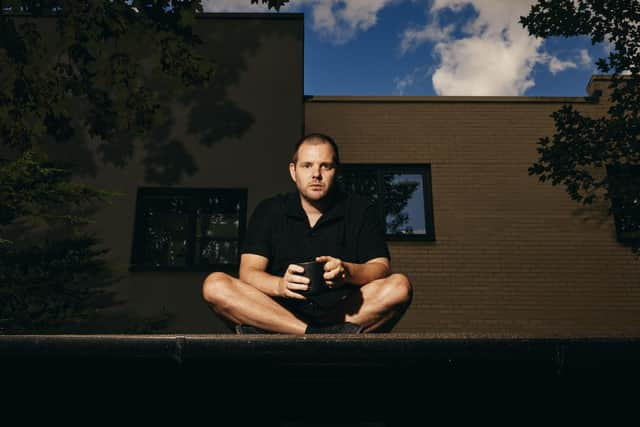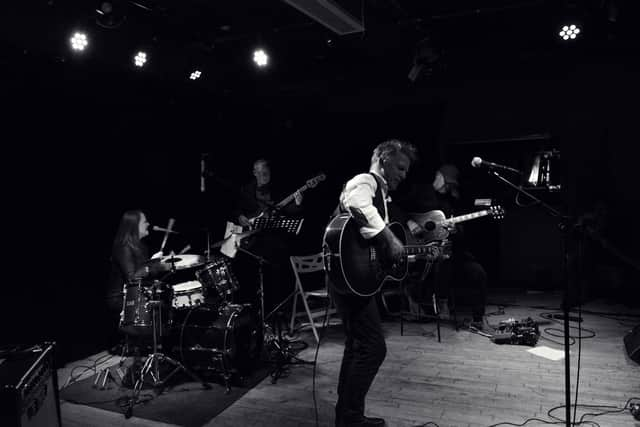Album reviews: The Streets | The Bathers | Goat
The Streets: The Darker The Shadow The Brighter The Light (679 Recordings) ****
The Bathers: Sirenesque (Last Night From Glasgow) ****
Goat: Medicine (Rocket Recordings) ****


Following his 2020 mixtape, None Of Us Are Getting Out Of This Alive, Mike Skinner returns with the first “proper” album by The Streets in 12 years. The Darker The Shadow The Brighter The Light is the audio element of a project seven years in the making, which centres on Skinner’s feature film of same name, a murder mystery set in London’s nightlife scene which he has described as his “Quadrophenia for clubbers”.
Advertisement
Hide AdAdvertisement
Hide AdThe music is more than a soundtrack, functioning as an album in its own right. With beats road tested in his DJ sets, Skinner aims to evoke the sensation of barrelling through a club, “pinballing around to the rhythm” on opening track Too Much Yayo. Initial impressions are that Skinner doesn’t seem to have moved on much in twenty years, with this being his latest chronicle of clubby indulgence. But the words are more thoughtful, the rhythm woozier and the mournfulness of the vocal hookline is a sentiment threaded through the album, especially on Bright Sunny Day, with regular collaborator Robert Harvey singing “I can see another bright sunny day without me in it”.
There are dark manoeuvres afoot on Shake Hands With Shadows, terse UK garage stylings on Money Isn’t Everything, layered Latino guitar over spoken word odyssey Walk of Shame (“my daily commute”) and a grainy Jazz Age blues sample on the title track, to which Skinner adds a trebly beat and survival of the fittest advice such as “find your lunch or become the lunch”, conducting himself like an elder statesman who still has some skin in the game.
First time round, The Bathers were cult movers through Glasgow’s metropolitan pop scene of the Eighties. Led by Chris Thomson, husky of voice and mannered of delivery a good twenty years before Paolo Nutini mumbled to the masses, they split in 2001, then reformed in 2015. Meticulous to a fault, Thomson now releases the band’s long awaited seventh album with exquisite backing from the Scottish Session Orchestra.


Interspersing short sketches with longer songs, Sirenesque begins with a minute of peaceful piano and birdsong before delivering the delicious burnished guitar solo and suitably sirenesque backing vocals of the title track. The brief Late Night Conversations goes as one might expect, with a dash of Nick Cave/Tom Waits noir, but Thomson aims even higher to hymn the timeless classicism of Sinatra on the serene and sad Garlands, suffused with the sighing ebb and flow of the strings.
Locomotion Is Easy is an elegant piano ballad with a ripple of rock guitar and a wordless soprano vocal, while Lost Bravado has a stately Blue Nile bearing and Feathers, Books and Lace all the Glaswegian urban romance you could desire. Thomson celebrates his locale but also yearns for Europe on the gruffer narration of A Map of Venice and evokes folk traditions on the clean and beautiful sound of She Rose Through the Isles.
Gothenburg’s masked marauders Goat have been spicing up soundtracks all over the shop of late – their trippy sonic stew was the highlight of Shane Meadows’ kitchen sink period drama The Gallows Pole, while their unmistakable strains were recently heard blasting out of a maniacal Ruth Wilson’s car in The Woman in the Wall.
Their latest album, Medicine, is another heady blend of strident female mantra vocals, flutes on stun and lashings of stoner rock wah-wah guitar. The pagan folk of Raised By Hills, swirling indie psych of I Became the Unemployment Office and hippy raga TSOD are thoroughly intoxicating but they also introduce the sultry, softer sound of You’ll Be Alright, featuring a gentle, seductive vocal and deliver a fuzz fest cover of Join the Resistance by fellow psychedelic Swedes’ Gås.


CLASSICAL
Luna (Sony) ***
Advertisement
Hide AdAdvertisement
Hide AdAs her half a million TikTok followers would suggest, ubiquitous multitasker Anna Lapwood – notable for bringing the rarefied world of organ music to a younger, hipper and infinitely wider audience – is a tireless phenomenon. On the Royal Albert Hall organ she extends that evangelism with a new solo album, Luna, of unashamed easy listening. To be fair, it’s an honest expression of her mission, inviting us to immerse ourselves in arrangements (mostly by herself) of music reflecting her own love of the night sky, from film scores such as Peter Pan, Pride and Prejudice and Hans Zimmer’s soundtrack to Interstellar to soft classics such as Debussy’s Clair de Lune and Chopin’s Nocturne in E flat. Atmosphere comes at the expense of more gripping substance, however. Not even Philip Glass’ Mad Rush, more exhilarating on organ than piano, or the fleeting involvment of Lapwood’s Pembroke College Cambridge Choir, can break the inoffensive spell. Ken Walton
JAZZ
Rob Luft: Dahab Days (Edition Records) ****
Highly regarded guitarist Rob Luft creates expansive, melodic soundscapes in his third “solo” album, inspired by time spent in Egypt’s Dahab region. Regular collaborators saxophonist Joe Wright, Joe Webb on piano and Hammond, bassist Tom McCredie and drummer Corrie Dick are joined by guests including the Amika string quartet. The album’s shifting moods and tones are exemplified by the opener, Be Water, My Friend, ushered in by light acoustic chording and crisp snare, then alternating between aqueous glide, pensive violin and majestically echoing electric guitar. Elsewhere, the cavernous soundscape of Dreamworld contrasts with the vivacious Sunshine Music (Steve Buckley piping brightly on penny whistle), while they bring boisterous new life to Aphex Twin’s Flim and a dignified procession to Duke Ellington’s African Flower. They close with the richly melancholy Arabic tune Lamma Bada Yatathanna, Byron Wallen’s trumpet soloing eloquently before organ and guitar sail on their stately way. Jim Gilchrist